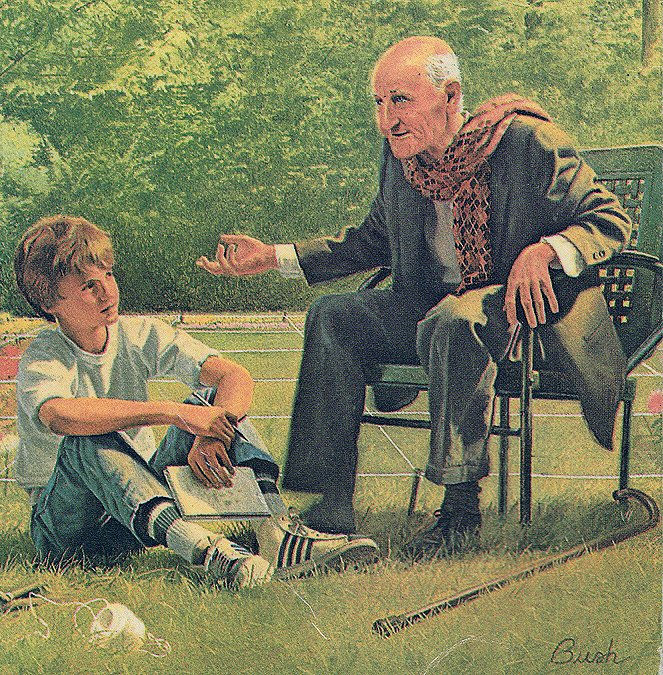look closer to really see
- TBMM

- Apr 26, 2025
- 4 min read
Updated: 1 day ago
The tiniest details hide profound secrets, but we rush past them every day. In the novel The 79 Squares, by Michael J. Bosse, a rebellious teenager discovers this truth through an unexpected challenge that transforms his life.
Everything irritates and bores Eric, he feels his parents don’t understand him, and he hangs out with some troublemakers. One day he's caught trespassing in the garden of 82-year-old Mr. Beck, a former convict who served 40 years in prison. To Eric's surprise, instead of getting angry, Mr. Beck challenges him to study his garden by dividing it into 79 equal squares and observing each one closely for an hour daily, focusing on all the small details. At first Eric thinks the old man is crazy, but he feels intrigued and slowly grows fascinated with all the things he begins to discover: plants, insects, unexpected insights... and forms an unlikely bond with Mr. Beck, finding purpose and perspective. However, Eric’s parents are concerned about Mr. Beck’s criminal past, and his gang grows suspicious of the changes in his behaviour. This is a book that explores key aspects of personal development, like standing up for who you are instead of following the herd. It realistically portrays how many youngsters try hard to fit in with a group, doing what the leader says —even if that leader isn’t kind or worth admiring— instead of being themselves and making their own choices.
Eric is confused as he moves from being a child to a teenager, and it’s interesting to witness his inner battle as he struggles with acting the way he thinks the group wants, versus what his conscience tells him is right.
Through the peculiar task given to him by the old Mr. Beck, Eric starts to understand himself and the world around him better. It also leads him to reflect on aging, teaches him the true value of friendship, and shows him that one should not judge lightly —like why Mr. Beck was in prison. The author does not soften it, letting Eric and the reader figure out what to think.
A fragment from the book: “Lie flat on your stomach in the grass and look around,” the old man commanded. Eric did. “What do you see?” “Grass.” Eric said. And then he added, “The ground.”
“Keep looking.” A couple of minutes passed. “Tell me what you see now.”
“The same thing. Only— I don’t know,” Eric said with a little laugh of self-consciousness. “Well, everything seems bigger. Like a… jungle.” “Maybe that’s because you’re close to the ground, the grass.” And it was true. The longer Eric looked, the deeper into an endless undergrowth his eyes seemed to travel. It was an optical trick. He lifted his head and shifted around into a sitting position. Abruptly Mister Beck said, “Find an ant and follow it.” Eric began crawling on all fours over the lawn. After only a few feet he saw a large black ant trundling between blades of grass. “Found one!” he shouted. “Stay with it!” Eric focused hard on the insect. He followed the six rapidly moving legs across clumps of earth, losing them momentarily under some crabgrass. “Stay with it!” Eric remained on all fours and peered so intensely at the ant from about a foot away that he began to feel dizzy. The machine-like rapidity of the black legs was hypnotic. And the ant’s feelers, they, too, were hard to watch as they tapped in all directions, wildly it seemed, like a garden hose at full pressure snaking from side to side. He was not so much looking at the ant as thinking of himself looking at the ant. What would his friends think of him crawling around in the grass after a little ant? Eric blinked. The ant was no longer there. He searched the grass, swept his fingers through it, but the ant had definitely disappeared. “Lost it,” he muttered rising. “Have you any idea why you lost it?” Eric shook his head. “You started to think of something else, didn’t you? Maybe thirty seconds passed or even less. But that was enough time for the ant to hide or change direction. You were thinking about yourself looking at the ant.” Amazed at this insight, Eric stared at the old man, who was now smiling. “Don’t be surprised, Eric. When a man is locked up for forty years, he becomes acquainted with concentration. It’s what he learns to do, concentrate, or he goes nuts. I lived in a cell, five by seven, so I learned how to expand it.” Mister Beck stretched his trembling hands out as if to encompass the garden. “I lost myself in time and space.” He squinted thoughtfully at Eric. “I looked at a wall closely enough to find a crack in it, some kind of imperfection I could follow visually. I made my eyes follow that crack until it met another crack or the edge of the wall. Then I’d follow the new crack or the edge of the wall until something else crossed it a new line of some sort. Pretty soon the wall became really immense. It was like a huge field or like this garden here, full of lines and bumps. It had character. It was like a face, full of variety and mystery. Looking at a wall that way got rid of some hours, that many hours less to spend locked up. I had put them behind me without having to suffer through them. Kept me sane, Eric. But it took a long, long time before I could use the method without thinking about myself doing it. Go find another ant.”


Comments